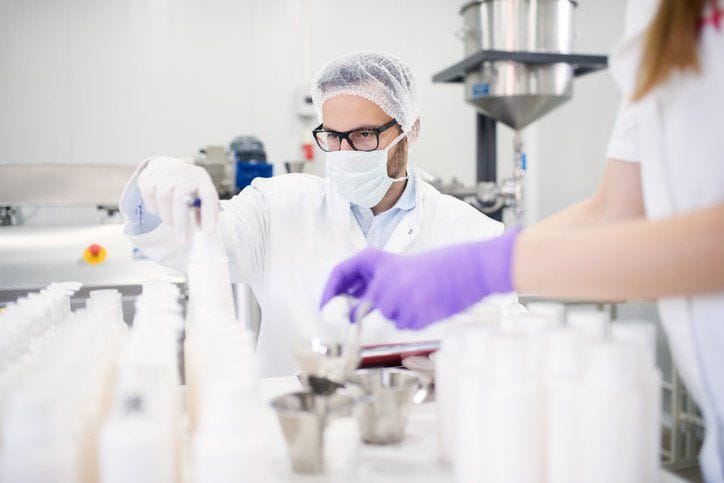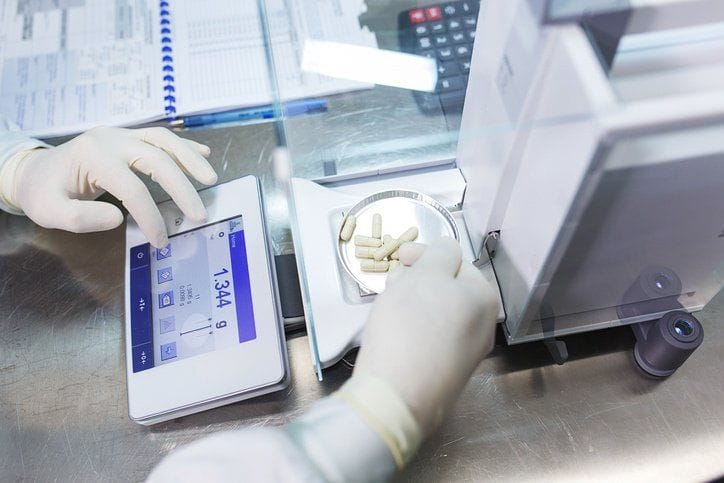
Are you looking to start a career in a field where you’ll have plenty of space for advancement? Do you dream of a job where you’ll contribute to helping people? Are you a stickler for detail? Then a career in the pharmaceutical industry may be right for you. Work in the pharmaceutical industry gives you the opportunity to play an integral role in the development and production of life-saving drugs and medications.
The manufacturing and production side of the pharmaceutical industry holds a lot of promise for those looking for a career with potential for upward momentum. In fact, Statistics Canada figures show that in 2017 the manufacturing sector of the industry employed 30,000 people and had an impressive employment growth rate of 10.7%.
Read on to find out if working in the production and manufacturing of pharmaceuticals could be your dream job.
What is Pharmaceutical Manufacturing?
Drug companies spend a lot of time and money on the research and development of new drugs, but when it comes time to get those drugs to market, they need to scale up their production rapidly. That’s where pharmaceutical manufacturing comes in.
Pharmaceutical manufacturing is the process that drug companies use to create drugs and medications on a large-scale, industrial basis. Essentially, professionals who work in the manufacturing of pharmaceuticals help get medicine from the lab to the shelves of pharmacies and hospitals around the world.
Begin Your Career as a Pharmaceutical Manufacturing Technician
A career in pharmaceutical manufacturing usually begins as a technician, which for many people, is their door into this fast-paced and growing industry. Pharmaceutical manufacturing or production technicians are generally responsible for making sure equipment is cleaned, maintained and run properly. They also play an essential role in maintaining the quality and consistency of the final product by following proper aseptic procedures and recording data.

Pharmaceutical technicians need to perform tests and record data to maintain safety and consistency
A typical day as a pharmaceutical manufacturing or production technician may include the following roles and responsibilities:
- Production preparation: reviewing the production schedule, gathering and measuring supplies and materials and calculating the specifications for the current production run.
- Cleaning and maintenance: sterilizing and inspecting equipment and performing regular maintenance checks.
- Operations: setting up and monitoring equipment, recording data, making calculations and adjusting controls; if a breakdown occurs, technicians may also be responsible for troubleshooting the problem and arranging for repairs.
- Safety: technicians play an essential role in maintaining a safe workplace and creating a consistent and reliable product by following current good manufacturing practices (cGMP), performing safety checks and maintaining logs, ensuring regulatory compliance and adhering to aseptic best practices.
The skills students learn in pharmaceutical manufacturing programs and during their careers as technicians can also be applied to many different industries beyond pharmaceuticals, including cosmetics, food, naturopathies and biotechnology.
Taking the Next Step Towards a Career in Pharmaceutical Manufacturing
To begin a career in pharmaceutical manufacturing, you’ll need an education that gives you the essential skills for learning how to operate, maintain and understand the equipment and data that technicians regularly work with. By providing theoretical knowledge and hands-on learning, a good pharmaceutical manufacturing program will set you up with the skills that drug companies and related employers look for in new hires.
Are you ready to jumpstart your career in pharmaceutical manufacturing?
Contact Oxford College today to learn more about our intensive pharmaceutical manufacturing course!






